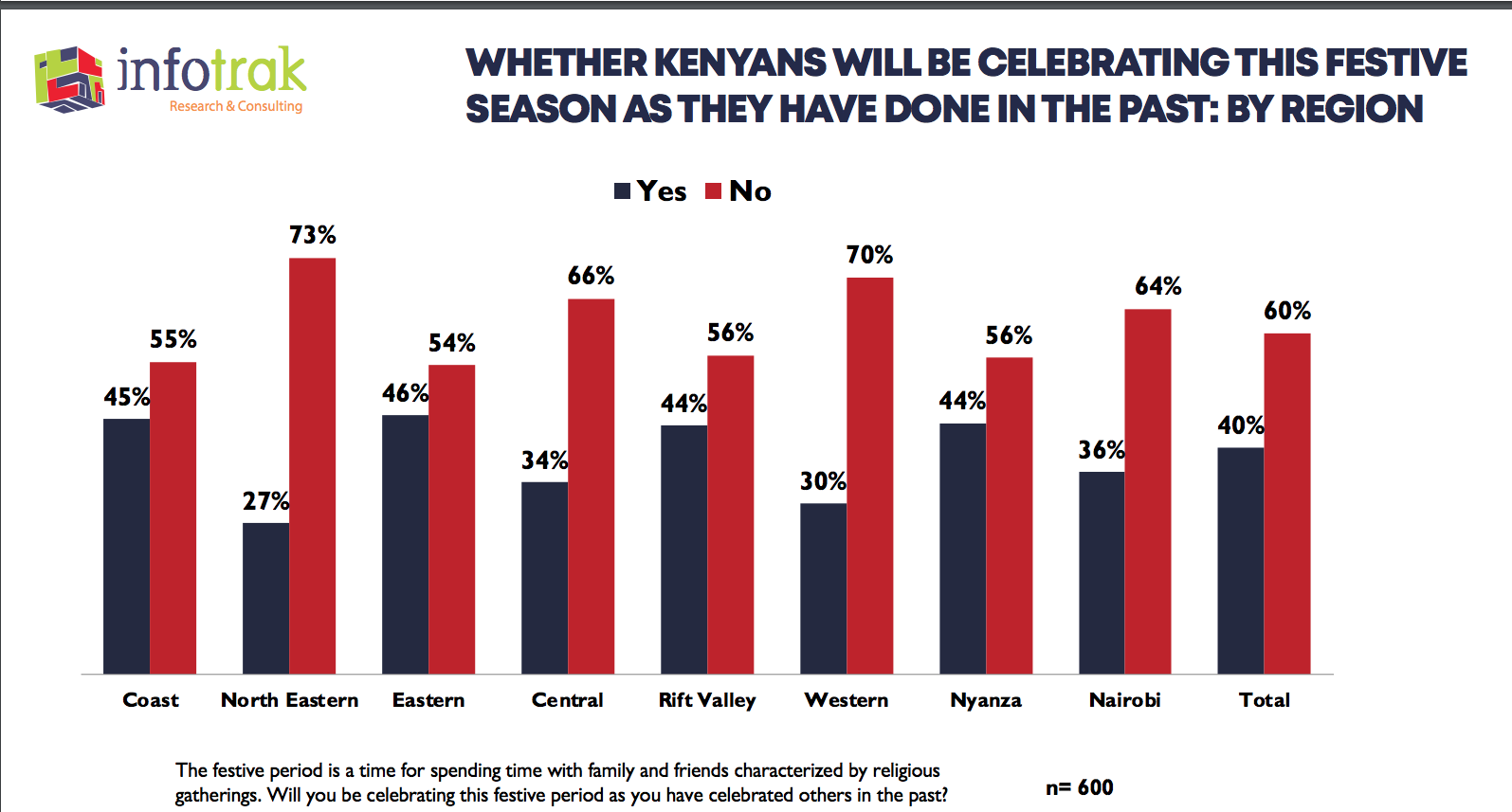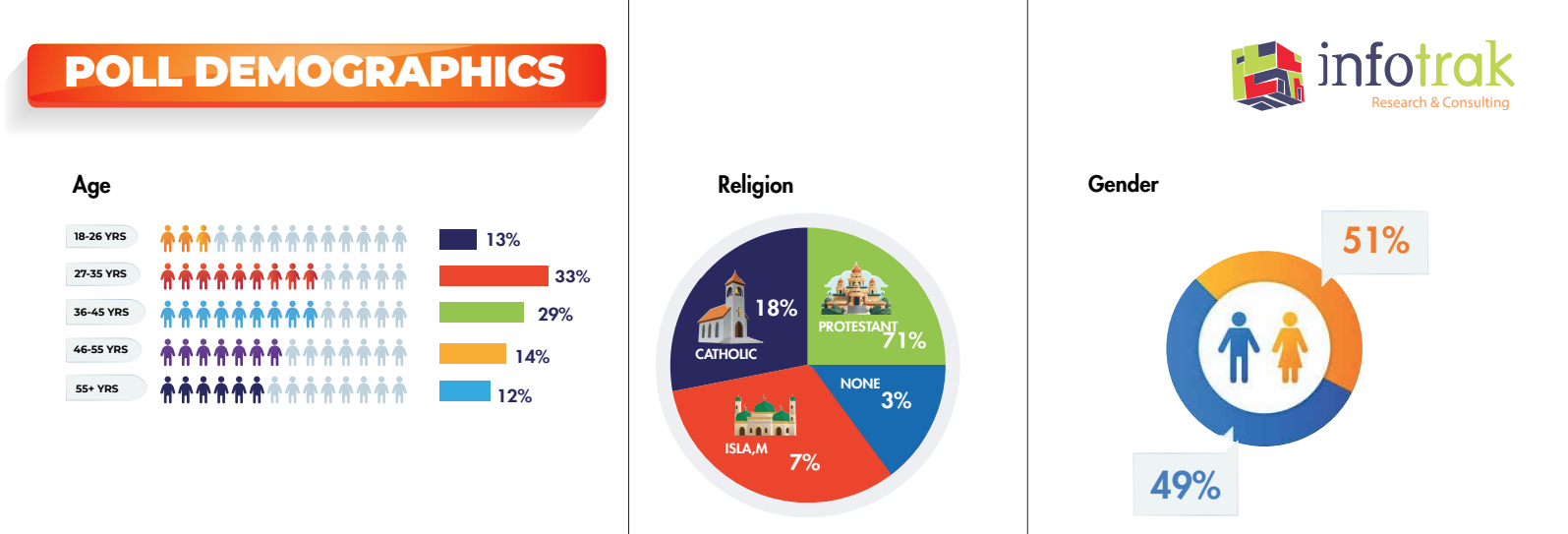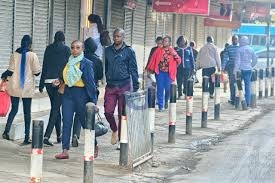
A significant number of Kenyans say they will not be celebrating Christmas and New Year festivities as has been their tradition.
A survey by Infotrak released on Christmas Eve said lack of money was the dominant reason for opting out of the festivities.
The report shows that most Kenyans (86 per cent) cited financial constraints as the primary barrier, cutting across all ages, gender, and regional divides.
In terms of gender, 89 per cent of males cited the above reason compared to 83 per cent females.
Young adults (18-26 years) were the most affected, with 89 per cent citing financial reasons for not celebrating.
The trend points to youth economic disempowerment as a critical concern - highlighting broader challenges of unemployment and financial insecurity.
"Spending time with family (63 per cent) is the most common celebratory
activity for those who could afford it," the report says.
In terms of region, Nairobi leads as the hardest-hit region by the financial problem at 100 per cent followed by Western (91 per cent), Central (91 per cent), Eastern (90 per cent), Coast (85 per cent) and Nyanza (80 per cent).

About 10 per cent of the respondents said they are not interested in celebrating out of choice, with disinterest slightly higher among younger and urban demographics.
Females (12 per cent) cited this as their main reason compared to 8 per cent males.
Some 6 per cent of the respondents said they would be working while 2 per cent said they are Muslims.
The survey was conducted on December 20 and covered all the 47 counties and 8 regions.
To ensure national representation, the distribution of the survey sample across the regions was proportionately allocated.
There was a 96 per cent response rate with a margin on error of ±4.001 per cent at 95 per cent degree of confidence.
The survey was conducted through quantitative interviews using Computer Assisted Telephone Interviews (CATI).
Despite the financial constraints, 40 per cent of Kenyans said they still intend to celebrate in some form, focusing on family and community.
According to the survey, 63 per cent intend to spend time with their families, 28 per cent said they will be attending church or prayers while 27 per cent said they will spend time with friends.
Another 15 per cent said they will stay indoors, 11 per cent will go for a holiday, 5 per cent intend to party and drink while 4 per cent said they intend to vist the sick or children's homes.
"The cost-saving behaviour indicates a shift toward simpler, low-cost celebrations during financial hardships," Infotrak noted.



















